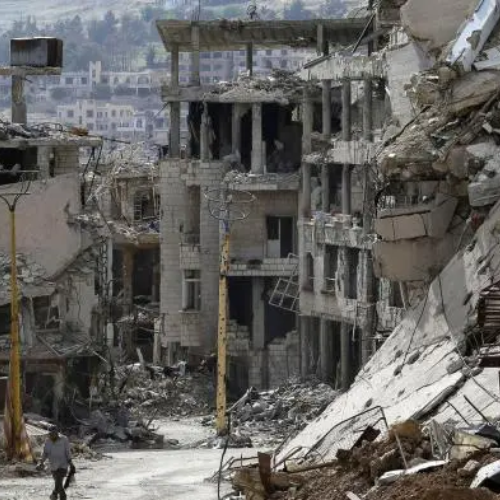Human Rights Watch (HRW) has urged governments worldwide to lift tough sanctions against Syria. The organization claims these restrictions are stopping the country from rebuilding after years of war. The sanctions, mainly imposed by the United States, the European Union (EU), and the United Kingdom (UK), were originally meant to pressure the Assad regime. However, with the fall of the former government, these penalties now make life even harder for ordinary Syrians.
Hiba Zayadin, a senior Syria researcher at HRW, stated that millions of Syrians are struggling to survive, and the country desperately needs reconstruction. However, she explained that the current sanctions make it nearly impossible to restore vital services like healthcare, water, electricity, and education. Without these basic services, many people in Syria are left suffering.
The US, which has some of the strictest sanctions, introduced the Caesar Syria Civilian Protection Act in 2019. This law prevents most American goods from being sent to Syria and punishes foreign companies that do business with the Syrian government. The restrictions mainly affect industries such as construction, energy, and engineering. These are the very sectors needed to rebuild Syria’s destroyed cities, hospitals, and schools. The law also punishes those who try to profit from Syria’s crisis by taking part in reconstruction.
Cautious Relief: EU Lifts Some Sanctions on War-Torn Syria
US and EU Insist on Exemptions for Aid
Despite these sanctions, the US has stated that humanitarian aid is not restricted. According to American officials, the US government has always made exceptions to allow food, medicine, and other necessities to reach the Syrian people. They also claim to be working with humanitarian groups to deliver supplies even in areas controlled by the former government.
The EU and the UK have also placed heavy restrictions on Syria. They have banned the purchase of Syrian crude oil and blocked foreign investments in the country. This makes it even harder for Syria to recover financially. Without access to global markets, the country cannot trade its resources or attract investors who could help rebuild essential infrastructure.
As the situation worsens, the United Nations High Commissioner for Refugees (UNHCR) has also spoken out. On January 9, the UN agency called for immediate funding to restore healthcare and education in Syria. With many Syrian refugees returning home after the war, there is an urgent need to provide them with basic services. However, without financial support and the lifting of key trade restrictions, it is difficult to provide what is needed.
Syria Blocks Russian Evacuation, Sparking Major Military Standoff
Efforts to Ease the Sanctions
In response to growing pressure, the US has taken some steps to ease restrictions. Former President Joe Biden waived certain foreign aid limits, allowing assistance to reach countries that help Syria. The US Treasury has also issued General License 24, which permits specific transactions with the Syrian government. However, these changes are limited and do not fully remove the obstacles to Syria’s reconstruction.
The EU has also started to reconsider some of its restrictions. A political agreement was recently reached to gradually and conditionally suspend certain sanctions. However, there are still many restrictions in place, and international pressure continues to grow.
HRW is calling on governments to rethink these sanctions and prioritize the well-being of Syrian civilians. The organization urges world leaders to allow Syria access to global financial systems, end trade bans on essential goods, and remove energy restrictions to ensure people have electricity and fuel.
For now, millions of Syrians continue to struggle without basic services. While some governments are taking small steps to ease sanctions, HRW and the UN believe more must be done to help the country recover.


